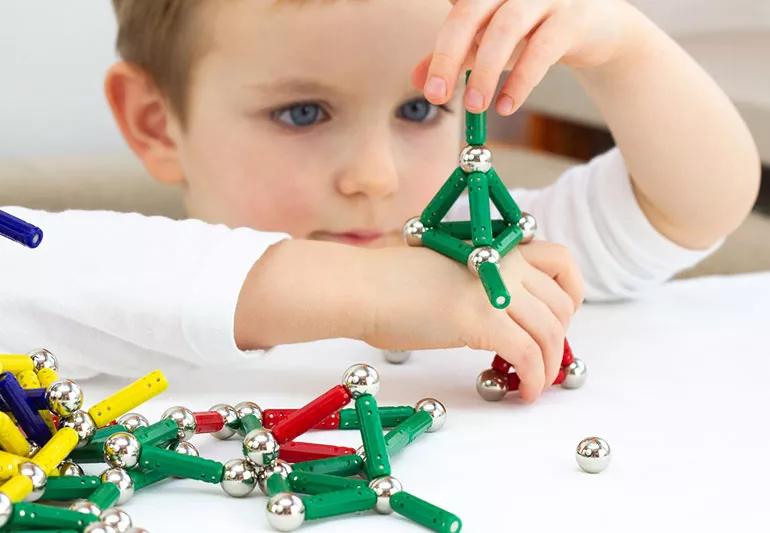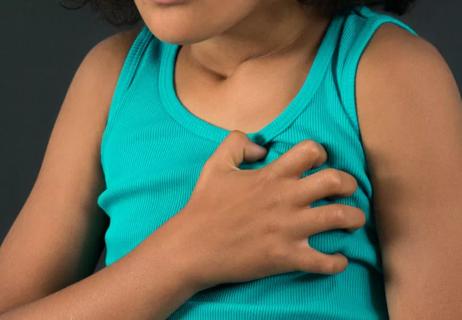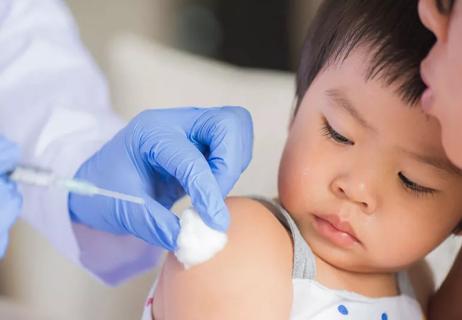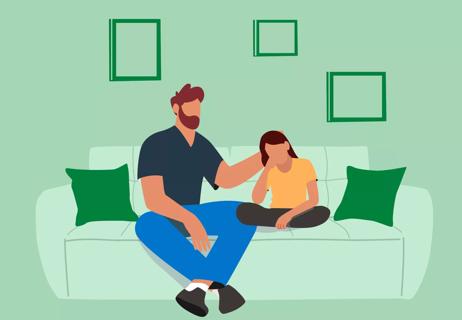Know when your child needs medical attention

Infants and young children will eat the strangest things. Serve them a nutritious meal, and they’ll fight you. They’ll be happy to indulge, however, on a shiny coin, small battery or colorful toy.
Cleveland Clinic is a non-profit academic medical center. Advertising on our site helps support our mission. We do not endorse non-Cleveland Clinic products or services. Policy
“To prevent problems, keep potential ingestion hazards away from young children — up high, out of sight and out of reach,” says pediatrician Jason Sherman, DO.
Benign items will usually work their way out, but call your doctor with any concerns, especially if you notice these symptoms in your child:
Gum is a fairly benign item that your child may accidentally or intentionally swallow.
“Let’s dismiss the old wives’ tale,” says Dr. Sherman. “Gum does not stay in a person’s stomach for seven years. Although it’s true that gum cannot be digested, a small wad of gum will usually make its way out of the child’s stomach in a couple of days.”
The biggest danger is if the amount of gum is large enough to cause choking. Otherwise, if your child swallows the gum without other symptoms, you typically don’t need to take the child to a pediatrician or the emergency department.
Most of the major brands of modeling clay, such as Play Doh, are nontoxic and say so on the container. Unless a child eats a large amount, most modeling clay should not cause serious problems, other than possibly some mild diarrhea. If your child ingests a significant amount or feels sick, then you should make a trip to the doctor or emergency department.
These are a little trickier.
“Most small toys with rounded edges will pass through a child’s digestive system within a few days,” says Dr. Sherman. “A sharp-edged or a larger piece can sometimes cause problems.”
For this reason, if your child swallows a sharp or large piece of a toy, it is best to call your pediatrician and plan on a visit or a trip to the emergency room for evaluation. It is also OK to go to your pediatrician’s office if they have X-ray capability there.
The following items are hazardous when ingested and need a doctor’s immediate attention:
Lithium batteries, also known as button batteries, are small and round, and can cause significant problems if ingested. Button batteries are commonly found in toys, hearing aids, key fobs and watches. The batteries are loaded with dangerous chemicals that can be very harmful to a child’s digestive system. Regular, alkaline batteries are also extremely dangerous if swallowed, but that’s less likely because of their larger size.
If your child swallows any type of battery, this is considered an emergency and you should immediately take your child to a hospital emergency department.
Magnets can cause a lot of damage in a child’s GI tract and can twist intestines, causing bowel ulcerations, intestinal damage, perforations, blood poisoning and even death.
It can be even more life-threatening if your child swallows more than one magnet. If one magnet is stuck in the colon and the other is in the small intestine, those magnets can attach to each other through bowel walls. This can potentially cut off blood supply or tear a hole in the bowel, allowing waste to leak into the body. The effects can make your child extremely sick and can be fatal.
To prevent this from happening, get rid of any toys that have magnets in them. If your child swallows a magnet, or if you think your child swallowed a magnet, you should take him to a hospital emergency department immediately.
Coins are one of the most common items that children swallow. If your child swallows a coin, take him or her to the pediatrician or to a hospital emergency department. Although most small coins will pass through a child’s GI tract, it is important to know where the coin is in the child’s digestive tract. An X-ray may be necessary to ensure that the coin is passing through the digestive tract normally.
After swallowing an object, if your child develops coughing, gagging, trouble swallowing, drooling, chest pain, stomach pain, vomiting, or problems going to the bathroom, you should either contact your pediatrician’s office or take your child to a hospital emergency department.
“Remember, prevention of ingestion is key,” says Dr. Sherman. “Encourage children to play with age-appropriate toys. Closely monitor and always observe your child as they grows, develops and explores his world.”
Your child’s pediatrician is a phone call away. If your child swallows something, don’t wait for symptoms to appear. If you are uncertain or concerned about something your child has swallowed, you can also contact the National Capital Poison Center hotline: 1-800-222-1222.
Learn more about our editorial process.

It’s never too early to teach your kids who strangers are and how to avoid unsafe situations

For starters, pick the right size backpack for your child, with wide, padded straps

Hydration and sleep are as important as avoiding dirty surfaces

Most chest pain in kids isn’t worrisome, but there are some symptoms that deserve attention

These visits include getting important vaccines and checking on developmental milestones

This parenting style relies on empathy, understanding and respect

It’s best to be honest and straightforward while remaining age-appropriate

How to tell if it's something more serious

Your metabolism may torch 1,300 to 2,000 calories daily with no activity

A gentle touch in all the right places may help drain your sinuses